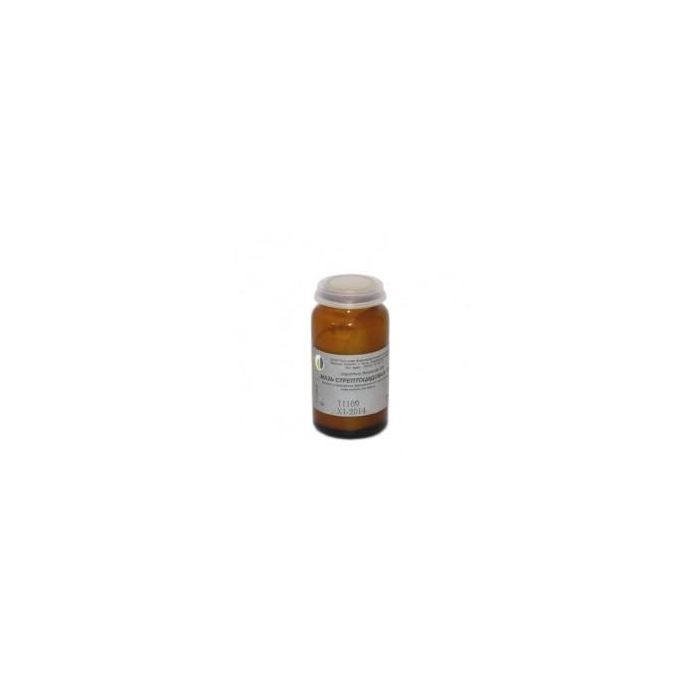sulfanilamide | Streptocid ointment 10%, 25 g
Special Price
$14.70
Regular Price
$22.00
In stock
SKU
BID496163
Release form
Ointment.
Ointment.
Release form
Ointment.
Pharmacological action
Antimicrobial bacteriostatic agent, sulfonamide. The mechanism of action of Streptocide is due to competitive antagonism with PABA, inhibition of dihydropteroate synthetase, impaired synthesis of tetrahydrofolate acid, necessary for the synthesis of purines and pyrimidines. Active against gram-positive and gram-negative cocci, Escherichia coli, Shigella spp., Vibrio cholerae, Clostridium perfringens, Bacillus anthracis, Corynebacterium diphtheriae, Yersinia pestis, Chlamydia spp., Actinomyces israeliiiiiiiiiiiiiiiiiiiiiiiiiiiiiiiiondiiii When applied to the skin, it contributes to the rapid healing of wounds and epithelization of erosion.
Indications
Local treatment: tonsillitis, infected wounds of various etiologies, burns (I-II art.), folliculitis, boils, carbuncle, acne vulgaris, impetigo, other purulent-inflammatory processes of the skin, erysipelas.
Contraindications
Hypersensitivity, anemia, renal / liver failure, congenital deficiency of glucose-6-phosphate dehydrogenase, azotemia, porphyria, pregnancy, lactation.
Special instructions
A generous alkaline drink is recommended during therapy.
Composition
1 g contains sulfonamide: para-aminobenzenesulfamide 10 mg.
Dosage and administration
Locally, externally, smear on a gauze napkin dressings produced after 1-2 days.
Side effects
Allergic reactions. With prolonged use of large doses - a systemic effect: headache, dyspepsia, leukopenia, agranulocytosis, nausea, vomiting, crystalluria.
Drug interactions
Myelotoxic drugs enhance the hematotoxicity of the drug.
Storage conditions
In the dark place at a temperature of no higher than 25 РC.
Deystvuyuschee substances
sulfanilamide
Dosage form
ointment
Tula farmfabrika, Russia
Ointment.
Pharmacological action
Antimicrobial bacteriostatic agent, sulfonamide. The mechanism of action of Streptocide is due to competitive antagonism with PABA, inhibition of dihydropteroate synthetase, impaired synthesis of tetrahydrofolate acid, necessary for the synthesis of purines and pyrimidines. Active against gram-positive and gram-negative cocci, Escherichia coli, Shigella spp., Vibrio cholerae, Clostridium perfringens, Bacillus anthracis, Corynebacterium diphtheriae, Yersinia pestis, Chlamydia spp., Actinomyces israeliiiiiiiiiiiiiiiiiiiiiiiiiiiiiiiiondiiii When applied to the skin, it contributes to the rapid healing of wounds and epithelization of erosion.
Indications
Local treatment: tonsillitis, infected wounds of various etiologies, burns (I-II art.), folliculitis, boils, carbuncle, acne vulgaris, impetigo, other purulent-inflammatory processes of the skin, erysipelas.
Contraindications
Hypersensitivity, anemia, renal / liver failure, congenital deficiency of glucose-6-phosphate dehydrogenase, azotemia, porphyria, pregnancy, lactation.
Special instructions
A generous alkaline drink is recommended during therapy.
Composition
1 g contains sulfonamide: para-aminobenzenesulfamide 10 mg.
Dosage and administration
Locally, externally, smear on a gauze napkin dressings produced after 1-2 days.
Side effects
Allergic reactions. With prolonged use of large doses - a systemic effect: headache, dyspepsia, leukopenia, agranulocytosis, nausea, vomiting, crystalluria.
Drug interactions
Myelotoxic drugs enhance the hematotoxicity of the drug.
Storage conditions
In the dark place at a temperature of no higher than 25 РC.
Deystvuyuschee substances
sulfanilamide
Dosage form
ointment
Tula farmfabrika, Russia
Write Your Own Review

